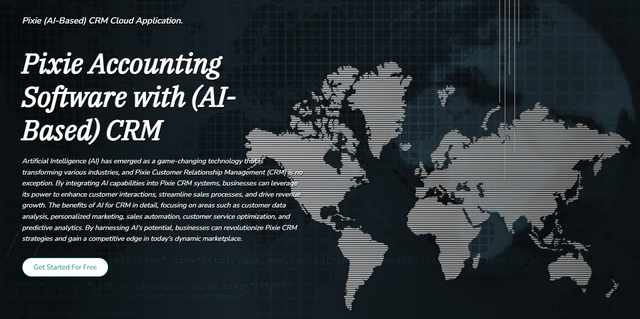Best Accounting and Bookkeeping Free Software For Small Businesses
Introduction:
Accounting and bookkeeping are essential functions for businesses of all sizes. They involve managing financial records, tracking transactions, and preparing financial statements. Traditionally, these tasks were performed manually, consuming valuable time and resources. However, with the advent of accounting and bookkeeping software, businesses now have access to efficient and accurate tools that streamline these processes. In this article, we will explore the numerous benefits of accounting and bookkeeping software for businesses.

Increased Efficiency:
One of the primary advantages of accounting and bookkeeping software is the significant increase in efficiency. Manual bookkeeping methods are time-consuming and prone to errors, requiring extensive data entry and calculations. Accounting software automates these processes, reducing the time and effort required to manage financial records. The software can perform complex calculations, generate reports, and streamline workflows, allowing businesses to focus on core activities.
Improved Accuracy:
Accounting and bookkeeping software are designed to minimize human errors. Manually recording financial data is susceptible to mistakes, such as data entry errors, miscalculations, and misplaced records. Software eliminates these risks by automating data entry, performing calculations accurately, and maintaining consistent record-keeping practices. This ensures that financial statements and reports are reliable and accurate, leading to better decision-making.
Enhanced Financial Analysis:
Accounting software provides businesses with powerful tools for financial analysis. It allows for the generation of comprehensive reports, such as balance sheets, income statements, and cash flow statements, in real-time. These reports provide a holistic view of a company's financial health, enabling management to identify trends, spot opportunities, and make informed strategic decisions. Additionally, software often includes forecasting and budgeting features, enabling businesses to project future financial scenarios and plan accordingly.
Time Savings:
By automating repetitive tasks, accounting and bookkeeping software significantly reduce the time spent on financial management. Processes like data entry, bank reconciliations, and invoicing can be completed quickly and accurately. As a result, employees have more time to focus on value-added activities, such as analyzing financial data, developing strategies, and fostering customer relationships. The time savings can also lead to faster month-end closings and reduced turnaround times for financial reporting.
Streamlined Tax Compliance:
Tax compliance is a critical aspect of running a business, but it can be a complex and time-consuming process. Accounting software simplifies tax-related tasks by automating calculations, generating tax forms, and ensuring compliance with relevant tax regulations. It can track and categorize expenses, calculate taxes owed, and generate accurate tax reports. This not only saves time and reduces the risk of errors but also helps businesses avoid penalties and audits.
Improved Data Security:
Maintaining the security and confidentiality of financial data is paramount for businesses. Manual record-keeping methods pose a risk of physical loss or unauthorized access. Accounting and bookkeeping software provide robust security measures, including data encryption, user access controls, and secure cloud storage. These features ensure that financial information remains protected from unauthorized access, data breaches, and natural disasters.
Easy Collaboration and Accessibility:
Cloud-based accounting software allows for easy collaboration and access to financial data from anywhere with an internet connection. Multiple users can work simultaneously on the same data, improving team collaboration and efficiency. Furthermore, business owners and managers can access real-time financial information, even while on the go, enabling them to make informed decisions promptly. This level of accessibility enhances agility and responsiveness in today's fast-paced business environment.
Scalability:
As businesses grow, their accounting and bookkeeping needs become more complex. Traditional manual methods may struggle to keep up with the increasing volume of transactions and data. Accounting software is highly scalable, allowing businesses to adapt and expand without compromising efficiency. The software can handle larger data sets, accommodate additional users, and integrate with other business systems as required.
Conclusion:
Accounting and bookkeeping software have revolutionized the way businesses manage their financial records. The benefits of using such software are numerous and impactful, including increased efficiency, improved accuracy, enhanced financial analysis, time savings, streamlined tax compliance, improved data security, easy collaboration and accessibility, and scalability. By leveraging these software solutions, businesses can streamline their financial management processes, make better-informed decisions, and ultimately achieve greater success in today's competitive business landscape. According to my experience i have found Pixie Accounting & Bookkeeping Free Software is the best, if I compare it with the other software available in the market, they say they are free but has limitations in features, Pixie is totally free for individuals or small company owners with all features and no limitations at all.